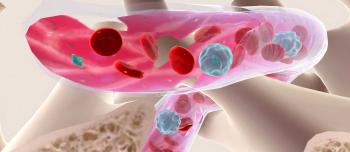UniQure recently announced that the company has reached its goal of enrolling 56 patients in the phase 3 HOPE-B trial of etranacogene dezaparvovec (AMT-061), the company’s investigational gene therapy candidate for patients with severe and moderately severe hemophilia B.
The therapy consists of an adeno-associated virus serotype 5 (AAV5), which has been demonstrated to be a safe and well-tolerated vector carrying a gene cassette with the Padua variant of factor IX (FIX). AAV5 is a variant of the type of the adeno-associated virus (AAVs) vectors that are being investigated in multiple gene therapy trials.
The phase 3 HOPE-B trial builds on the positive interim results of the ongoing phase 2b trial, the findings from which were included in an oral presentation at the XXVII Congress of the International Society on Thrombosis and Haemostasis in July 2019 in Melbourne, Australia. Data at 36 weeks-post administration showed that all three patients have sustained overall increases in FIX levels following a one-time intravenous infusion of etranacogene dezaparvovec. Mean FIX activity for the three patients was 45% of normal. The first patient achieved FIX activity of 54% of normal, the second patient achieved FIX activity of 30% of normal and the third patient achieved FIX activity of 51% of normal. There were also no reports of bleeding episodes that necessitated infusions of FIX replacement therapy.
The phase 3 HOPE-B trial is a multinational, single-arm study designed to evaluate the safety and efficacy of etranacogene dezaparvovec. According to a new UniQure press release, adult hemophilia B patients classified as severe or moderately severe are enrolled in a six-month observational period during which time they will continue to use their current standard of care to establish a baseline control. After the six-month “lead-in” period, patients will receive a single intravenous administration of etranacogene dezaparvovec.
“We are extremely pleased to reach this important milestone in our ongoing development of etranacogene dezaparvovec, which we believe has the potential to be the first and best-in-class gene therapy for patients with hemophilia B,” stated Matt Kapusta, chief executive officer of uniQure. “We appreciate the tremendous support from the hemophilia patient community in achieving this important goal ahead of schedule and look forward to sharing top-line data from the Phase III trial, which we expect to do next year.”
Source: UniQure press release dated September 3, 2019





